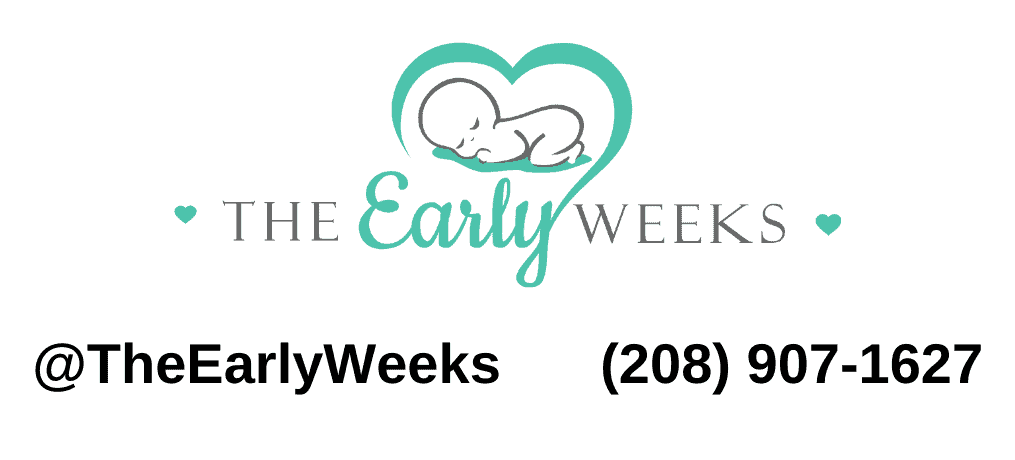If you’re reading this, you’re probably a new parent and learning really fast how challenging it can be to get your little one to sleep. The good news is that while there is a lot that goes into how well your baby sleeps and for how long, there is a lot YOU can do to HELP your baby sleep better. Below are 3 tips to help you, help your baby, so you can all get the sleep you desperately need!

1. Develop a Routine Early
One of the most important things to remember about babies and infants in general (especially concerning sleep) is this: the only thing consistent about an infant or young baby is their inconsistency. In order to help your baby be more consistent, you as parents need to be consistent, so your baby can understand and begin to anticipate what’s next. Developing a routine early in life, is crucial to this process.
Ideally, an eat, play, sleep routine is the best order of events for a young baby. This is because babies tend to get tired quickly if too much play is allowed first. This then leads to feeding that is interrupted by sleeping (snacking), because the baby is too tired to feed. Additionally, if a play, eat, sleep routine is followed, feeding to sleep is generally allowed and then the baby learns that in order for them to fall asleep, being fed is necessary. This is known as a sleep prop or sleep crutch.
2. Avoid Habitually Relying on Props for Sleep
Sleep props are anything necessary and required for your baby to sleep. Here are a few examples of sleep props:
- Feeding
- Pacifier
- Swing
- Being held
- Bouncing
- Motion (SNOO, car rides, giggling, swaying, rocking)
The problem with sleep props is that your baby isn’t learning good independent sleep skills and is instead relying on external factors to help them fall asleep. Parents often become their child’s sleep prop. One of the best things to help your child learn sleep skills early on in life is to teach them and help them get comfortable falling asleep on their own. This is accomplished by setting the stage prior to sleep, and putting your baby to sleep when they are drowsy, but still awake.
3. Focus on Full Feeds
I’m going to let you in on a huge secret here. Babies do not sleep well when they do not eat well and they do not eat well when they do not sleep well. This little conundrum may not seem like such a big deal at first thought. HOWEVER, it is crucial to your child’s sleep. Your baby will not sleep if they are hungry!! This one tip alone has a number of components, so I’m going to streamline the basics for you.
- If your BREASTFED baby is struggling to sleep, you should absolutely have him or her evaluated by a competent IBCLC for tongue and lip ties. I am very well educated in this area, and I see tied babies in a very large percentage of my sleep and consulting clients (currently one in San Louis Obispo). A tongue and lip tie prevent your baby from effectively transferring milk at the breast. This will lead to your baby not getting a full feed and instead snacking all day (and night). This snacking means your baby’s belly isn’t ever getting full, so they will wake hungry wanting to eat and eventually snack again. It’s a self perpetuating cycle. Additionally, because a tied baby cannot transfer milk effectively at the breast, there is usually a decrease in supply over time in the breastfeeding mother. The decrease in supply is gradual and hard to notice. What eventually happens is that the supply is affected to the point where there is very little for the baby to actually eat. Hence the reason the baby is wanting to eat All. The. Time.
- As a rule of thumb, your breast (after the initial few weeks when supply is being established) or bottle fed baby should be able to eat and last 2.5-3 hours in between feeds. Any less than that and the chance of them not getting enough, is VERY high.
- Your baby should eat and be done in roughly 20-25 minutes for either breast or bottle feeding. If it is taking longer, they are likely not actively eating or transferring.
- If your baby is getting distracted eating, pay attention to this and help them focus on the task at hand. Turning down the lights or TV and not engaging with them while they are eating is usually helpful.
If you are finding it challenging to make progress with your baby’s sleep, please understand that there are a lot of components that go into it. It’s a lot like an iceberg. There is only so much on the surface we can see and decipher and a lot more under the surface to evaluate! You don’t need to have all the answers. Let The Early Weeks Help! I love helping new parents change their sleep lives and would love to help you identify all the roadblocks contributing to your baby’s sleep challenges.
www.TheEarlyWeeks.com or contact us HERE.

Katie Bishop is a Certified Pediatric Sleep Consultant, Certified Advanced Newborn Care Specialist and Postpartum Certified Doula. She works with families worldwide and is passionate about helping new parents understand their newborns as well as teaching and remedying sleep challenges from birth. Her speciality is from birth to 3 years of age.


Great tips, Katie. As a new mom, I’ve been struggling to get my baby to sleep through the night. I appreciate your advice on establishing a consistent routine and creating a calm environment. I’ve been considering sleep training, but I’m still skeptical about whether it really works. Can you share your thoughts on does sleep training really work